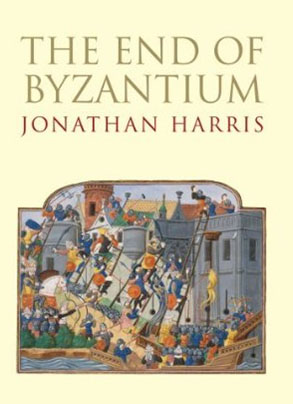The End of Byzantium
Review

The End of Byzantium - Jonathan Harris
(Yale University Press), 2010
298pp., £25, hard, IDBN 978-0-300-11786-8
That the modern world begins with the fall of Constantinople in 1453 as the Muslim hordes battled their way into Europe was a widely accepted position when I was in school. In fact, the Ottoman Empire had long been established in mainland Europe and Byzantium was a land-locked Christian enclave in an extremely hostile world. In 1400, the Byzantine Empire stood on the verge of destruction yet it survived for another half-century. This well-written study examines those decades through contemporary letters, chronicles, travellers' accounts and other less familiar archival materials. The author shows that this was not a period of constant warfare between Islam and Christianity and that the Christian empire in the East continued to exist reflected the strength of the city's defences (that held out against an Ottoman attack in 1422) as well as the diplomatic skills of Byzantine politicians.
The future may have been and bleak and uncertain for many ordinary Byzantines, but for much of the time successive Byzantine emperors were allies of the Ottoman sultan limiting his intrigues to covert actions. They may have hoped for deliverance from the Christian West and sought through diplomacy to create yet another crusade but the Empire was, with the exception of some military support from Genoa and Venice, largely alone. In his Decline and Fall, Gibbon saw the Empire as effete and feeble expressing the views of many in western Europe at the time. There was to be no last-minute rescue and when the end came in 1453 it was swift and brutal with the last emperor dying in the melee that marked the Ottoman conquest of the city. Jonathan Harris has written an excellent study of the final years of Byzantium in which he explores individual stories of diplomatic manoeuvres, intrigue and defiance against the backdrop of European and Ottoman history. It is a well-balanced account explaining the Byzantine and Ottoman positions and the problems they posed to finding a solution to the continued existence of a Christian outpost surrounded by Muslim lands. It is a story told with considerable verve and scholarship. I thoroughly recommend it.

